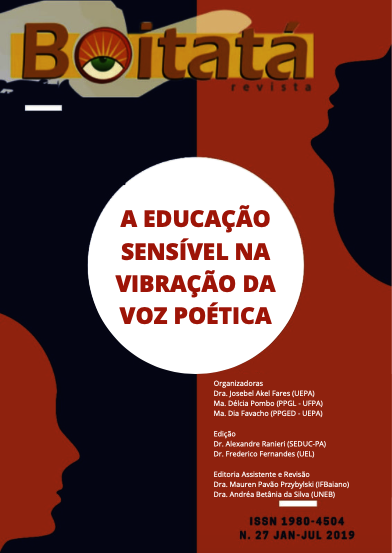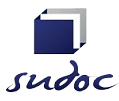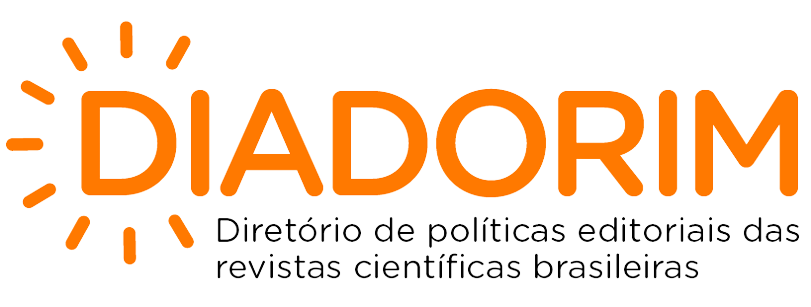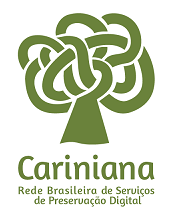Literature teaching in the country field education: possibilities of dialogues with cultures and ways of living
DOI:
https://doi.org/10.5433/boitata.2019v14.e38020Keywords:
Literature, Reading, Teaching, Country Field EducationAbstract
This article discusses the Literature teaching in the country field education, especially, bearing in mind the cultural and identity dialogues that the literary text can establish with the subjects in the reading training process. The country field, according to Arroio (2003), consists of an identity power, that is, it consists of subjects who have a diverse profile: “workers, peasants, women, black people, Indians, young people, homeless people. Historical collective subjects, moving, bothering, resisting. In motion” (ARROYO, 2003, p. 33), who denies and repulses any teaching proposal, that proves to be homogeneous and hierarchichal. In this perspective, it is expected that this text contributes to thinking about literature as an action that should take place in exchange with the experiences of social subjectsDownloads
Download data is not yet available.
References
AGAMBEN, Giorgio. Infância e história: destruição da experiência e origem da história. Belo Horizonte: Editora UFMG, 2005.
ARROYO, Miguel G.. Pedagogia em movimento: o que temos a aprender dos Movimentos Sociais? In. Currículo sem Fronteiras, v.3, n.1, p. 28-49, Jan/Jun 2003.
CALDART, Roseli Salete. Por uma educação do campo: traços de uma identidade em construção. In. KOLLING, Edgard Jorge; CERIOLI, Paulo Ricardo (Org.). Educação do Campo: identidades e políticas públicas. Brasília: articulação nacional por uma educação do campo, 2002.
COSSON, Rildo. Letramento Literário: teoria e prática. São Paulo: contexto, 2009.
DELEUZE, Gilles; GUATTARI, Félix. Kafka: Por uma literatura menor. 1ª Edição. Belo Horizonte: Autêntica, 2014. Tradução: Cíntia Vieira da Silva.
FOUCAULT, Michel. As palavras e as Coisas. São Paulo: Martins Fontes, 2000. Tradução de Salma Tannus Muchail.
HALL, Stuart. Da diáspora: identidade e mediações culturais. Tradução Adelaine La Guardia Resende. Belo Horizonte: UFMG, 2003.
J. GUINSBURG (Org.). A República de Platão. Tradução de J. Guinsburg. 2ª Edição. São Paulo: Perspectiva, 2014.
LIMEIRA, José Carlos. Negro homem, negra poesia. Disponível em http://pensador.uol.com.br/frase/NTI5NzM3/ Acesso em 12 de fev. 2015.
LIMA, Luiz Costa. Mímesis: Desafio ao pensamento. Rio de Janeiro: Civilização Brasileira, 2000.
LIMA, Jorge de. http://www.jornaldepoesia.jor.br/jorge.html#essanegra.
MARTINS, Leda. Performances do tempo espiralar. In. Performance, exílio e fronteira. Ravetti, Graciela; Arbex, Márcia (Org.). Belo Horizonte:UFMG,2002.
NIETZSCHE, Friedrich. A Gaia Ciência (tradução de Paulo César de Souza). São Paulo: Companhia das Letras, 1ª ed. 2001.
RAVETTI, Graciela; ARBEX, Márcia. Performance, exílio e fronteira (Org.). Belo Horizonte: UFMG,2002.
SAMPAIO, Alessandra. Relutância. In_ Cadernos negros: poemas afro-brasileiros. São Paulo: Quilombhoje, 2016.
SILVEIRA, Oliveira. Outra nega Fulô. In_ Cadernos negros, v. 11. São Paulo: Quilombhoje: 1988.
SOBRAL, Cristiane. Não vou mais lavar os pratos. 2013. Disponível em: https://www.geledes.org.br/nao-vou-mais-lavar-os-pratos-poesia-de-cristiane-sobral/ acesso em 30 de Jul. 2018, às 23h00.
SODRÉ, M. Pensar Nagô. Petrópolis: Vozes, 2017.
ZUMTHOR, Paul. A letra e a voz: a “literatura” medieval. Tradução Amálio Pinheiro e Jerusa pires Ferreira. São Paulo: Companhia das Letras, 1993.
ARROYO, Miguel G.. Pedagogia em movimento: o que temos a aprender dos Movimentos Sociais? In. Currículo sem Fronteiras, v.3, n.1, p. 28-49, Jan/Jun 2003.
CALDART, Roseli Salete. Por uma educação do campo: traços de uma identidade em construção. In. KOLLING, Edgard Jorge; CERIOLI, Paulo Ricardo (Org.). Educação do Campo: identidades e políticas públicas. Brasília: articulação nacional por uma educação do campo, 2002.
COSSON, Rildo. Letramento Literário: teoria e prática. São Paulo: contexto, 2009.
DELEUZE, Gilles; GUATTARI, Félix. Kafka: Por uma literatura menor. 1ª Edição. Belo Horizonte: Autêntica, 2014. Tradução: Cíntia Vieira da Silva.
FOUCAULT, Michel. As palavras e as Coisas. São Paulo: Martins Fontes, 2000. Tradução de Salma Tannus Muchail.
HALL, Stuart. Da diáspora: identidade e mediações culturais. Tradução Adelaine La Guardia Resende. Belo Horizonte: UFMG, 2003.
J. GUINSBURG (Org.). A República de Platão. Tradução de J. Guinsburg. 2ª Edição. São Paulo: Perspectiva, 2014.
LIMEIRA, José Carlos. Negro homem, negra poesia. Disponível em http://pensador.uol.com.br/frase/NTI5NzM3/ Acesso em 12 de fev. 2015.
LIMA, Luiz Costa. Mímesis: Desafio ao pensamento. Rio de Janeiro: Civilização Brasileira, 2000.
LIMA, Jorge de. http://www.jornaldepoesia.jor.br/jorge.html#essanegra.
MARTINS, Leda. Performances do tempo espiralar. In. Performance, exílio e fronteira. Ravetti, Graciela; Arbex, Márcia (Org.). Belo Horizonte:UFMG,2002.
NIETZSCHE, Friedrich. A Gaia Ciência (tradução de Paulo César de Souza). São Paulo: Companhia das Letras, 1ª ed. 2001.
RAVETTI, Graciela; ARBEX, Márcia. Performance, exílio e fronteira (Org.). Belo Horizonte: UFMG,2002.
SAMPAIO, Alessandra. Relutância. In_ Cadernos negros: poemas afro-brasileiros. São Paulo: Quilombhoje, 2016.
SILVEIRA, Oliveira. Outra nega Fulô. In_ Cadernos negros, v. 11. São Paulo: Quilombhoje: 1988.
SOBRAL, Cristiane. Não vou mais lavar os pratos. 2013. Disponível em: https://www.geledes.org.br/nao-vou-mais-lavar-os-pratos-poesia-de-cristiane-sobral/ acesso em 30 de Jul. 2018, às 23h00.
SODRÉ, M. Pensar Nagô. Petrópolis: Vozes, 2017.
ZUMTHOR, Paul. A letra e a voz: a “literatura” medieval. Tradução Amálio Pinheiro e Jerusa pires Ferreira. São Paulo: Companhia das Letras, 1993.
Published
2019-12-15
How to Cite
Velloso, S. G. de S. (2019). Literature teaching in the country field education: possibilities of dialogues with cultures and ways of living. Boitatá, 14(27), 94–108. https://doi.org/10.5433/boitata.2019v14.e38020
Issue
Section
Dossiê
License
Copyright (c) 2019 Boitatá

This work is licensed under a Creative Commons Attribution 4.0 International License.
Boitatá esta licenciada com CC BY sob essa licença é possível: Compartilhar - copiar e redistribuir o material em qualquer suporte ou formato. Adaptar - remixar, transformar, e criar a partir do material, atribuindo o devido crédito e prover um link para a licença e indicar se mudanças foram feitas.




















